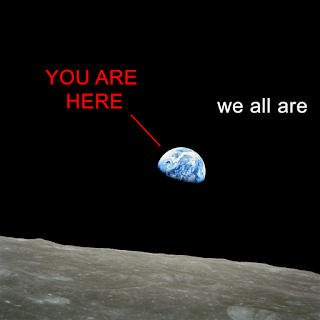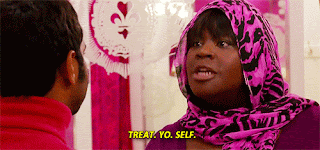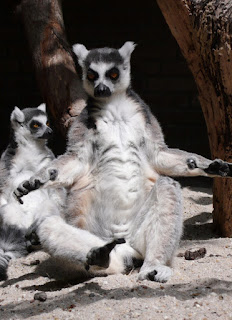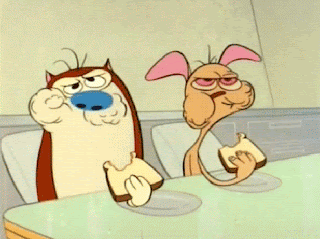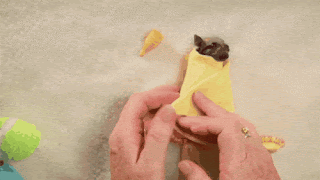Biographical
Name?
Daniel Messer
Current job?
Integrated Library System Administrator for the Maricopa County Library District
How long have you been in the field?
I’ve worked in libraries for 21 years.
How Do You Work?
What is your office/workspace like?
Well, here’s a picture!
As a systems librarian, it’s no surprise I’m a computer geek. I’m a slider, a term coined by Knightwise, which means I easily work on any computer and any operating system to get things done. I try to work in a way that makes me mobile, so I can easily work off-site or in branches. It’s a Microsoft environment and the library was awesome enough to provide me with a Surface Pro 4. This is my primary work machine, though I do have an older Dell Latitude at my desk that provides a remote computer inside the network if I need it. I work on Windows 7, Windows 10, various versions of Windows Server, and on Ubuntu Server. Beyond that, I typically use a MacBook Air, an iPad Air 2, an iPhone 6s+, and a first edition Apple Watch to get things done.
Outside of the tech, I’m an image junky and I have pictures everywhere. Some of them are funny, some of them are of things dear to me, and some are just beautiful and that’s all there is to it. I’ve got a few of my favourite fictional characters in toy form just to make me smile, like there’s The Question (Vic Sage, but I’d love to get a Renee Montoya version), Dr. Jillian Holtzmann, and Optimus Prime (he was a librarian!). There are tech books, a coffee maker, boxes of tea, and a thin veil of chaos.
How do you organize your days?
I use a modified version of the Getting Things Done (GTD) system. If you’d like to read the book, go ahead, but I think Lifehacker can save you some time. While I’m working, my email, the Polaris ILS Staff Client, Slack, Typora, and Firefox are open constantly. Firefox is running our trouble ticket system, TweetDeck, Wunderlist, and a self-hosted Unmark system.
I start the day around 7 am by checking our websites to make sure everything's running smoothly, and then I hit up email. I manage email with ruthless efficiency and before mid-day, my inbox is empty. If a task comes in that I can do right now and it’ll only take a few minutes, I do it. If I need to set something aside, I’ll add it to Wunderlist which is perfect for my task management needs. I almost always set a date due and it’ll ping me via the app on my iPhone and Watch along with sending an email. I’m terrified of missing something important, so I try to have redundant systems in place to remind me when something is due.
After that, I dive into tasks. No two days are the same. There are staff to manage in the ILS, issues to fix, tickets to work, meetings to attend, messages to respond to, training to plan, and branches to visit. I try to get out of the office on a regular basis to visit branches because, when it comes to using the ILS, the branches do far more than our administrative office.
Throughout the day, I use Typora to keep a log of what I’ve worked on. I write in MarkDown, and Typora is an excellent MarkDown editor. Mostly I log the date and then bullet-point my tasks and accomplishments. Whenever I need to know when, if, or why I did a thing, I can easily refer back to my log and cross reference it with Wunderlist and my Sent Items folder in Outlook.
I start the day around 7 am by checking our websites to make sure everything's running smoothly, and then I hit up email. I manage email with ruthless efficiency and before mid-day, my inbox is empty. If a task comes in that I can do right now and it’ll only take a few minutes, I do it. If I need to set something aside, I’ll add it to Wunderlist which is perfect for my task management needs. I almost always set a date due and it’ll ping me via the app on my iPhone and Watch along with sending an email. I’m terrified of missing something important, so I try to have redundant systems in place to remind me when something is due.
After that, I dive into tasks. No two days are the same. There are staff to manage in the ILS, issues to fix, tickets to work, meetings to attend, messages to respond to, training to plan, and branches to visit. I try to get out of the office on a regular basis to visit branches because, when it comes to using the ILS, the branches do far more than our administrative office.
Throughout the day, I use Typora to keep a log of what I’ve worked on. I write in MarkDown, and Typora is an excellent MarkDown editor. Mostly I log the date and then bullet-point my tasks and accomplishments. Whenever I need to know when, if, or why I did a thing, I can easily refer back to my log and cross reference it with Wunderlist and my Sent Items folder in Outlook.
What do you spend most of your time doing?
A little bit of everything. ILS management tasks are a pretty big part of my day along with planning for an ILS upgrade and the staff training that will involve. I’m starting to visit the branches more frequently, so I hope that I’ll spend most of my time where the action is really happening with the ILS and seeing what I can do to solve problems and make things better.
What is a typical day like for you?
I honestly don’t have one! Today I’m writing this from a branch on the east side of the County. Tomorrow I’ll be in Phoenix. Next week I’ll be in Surprise, then Anthem, then Gilbert, and so on. One of the best parts of what I do is that I don’t have a typical day. Sometimes I’m crazy busy and sometimes I’m looking for a project, either way, each day is its own.
What are you reading right now?
I read a lot of everything so no judging! I’m a historian of science and, while remaining skeptical, I have a fascination with the paranormal and I love a good ghost story. So with that in mind, the things I’m leafing through right now are:
- Paranormal: My life in pursuit of the afterlife by Raymond A. Moody, Jr.
- Before the Big Bang: The Prehistory of Our Universe by Brian Clegg
- Paranormal State: My journey into the unknown by Ryan Buell
What's the best professional advice you've ever received?
Don’t be so busy making a living that you forget to have a life. My dad told me that when I first moved to Arizona and it stuck with me. I’m not a workaholic, but I’m constantly connected. I can triage email from my watch for god’s sake… and I do. So while I love my job, I try not to let it become the Sauron’s Eye of my existence.
What have you found yourself doing at work that you never expected?
This job! I started out my career in circulation and I absolutely meant to stay there. I’ve got a decent background in computers and technology and I thought that circ was the place for me because, at least where I worked, circulation was the most technologically advanced department in the system. Sure, IT has servers and PCs to manage and all of that. But at one point, I was managing a department with eight self-check-out machines and two different self-check-in machines, each using lasers and radio to move materials through the library!I never wanted to leave, but a position in web content came open and, while I’ve done some web work, I mostly just applied to see just how far I could get through the process. Besides, I thought, after 17 years in circulation, a change might be good.
And I got the job.
I worked for just under four years in web content before a position opened up for an ILS Administrator. I’ve used Polaris ILS for almost the entirety of my career and I went for it and got it! I’m incredibly grateful and very lucky to have such a position seeing as how I started out as a page and planned on a career in circulation, not systems.
And I got the job.
I worked for just under four years in web content before a position opened up for an ILS Administrator. I’ve used Polaris ILS for almost the entirety of my career and I went for it and got it! I’m incredibly grateful and very lucky to have such a position seeing as how I started out as a page and planned on a career in circulation, not systems.
Inside the Library Studio
What is your favorite word?
Spizzerinctum. It means vim, vigour, and/or vitality or someone/something with those qualities. My dad is from North Carolina and my mom is from Missouri and I’m inclined to think it’s a word from the American South.
What is your least favorite word?
Moratorium. It’s rarely a good thing when a moratorium is imposed upon something. It also sounds like a place you go to buy dead things.
What profession other than your own would you love to attempt?
I wish I had more time to write and make podcasts. I listen to a lot of podcasts, typically going through three or four per day. When I listen to Cortex and hear Myke and Grey talking about how they quit their jobs to become podcasters and YouTubers, I often dream about doing the same. So if I wanted to do something else, I’d love to become a professional podcaster.
What profession would you never want to attempt?
Politics. Not even once.
Everything Else
What superpower do you wish you had?
Do you know how many problems would be solved for me if only I could fly? I’m not even talking about a putting on a cape, saving the day, superhero descending from the heavens kind of flight. I’m talking about no more morning commute, running errands in a fraction of the time, getting to places without driving sort of flight.
What are you most proud of in your career?
This may sound weird, but I don’t take a particular pride in anything specific. I’m thrilled with some things I’ve done, like speaking at Computers in Libraries or at the national Polaris Users Group conference. But in the end, I’d like to just be able to look back at my career and say, “You know what? I’m proud of the career, not just certain parts of it.”
If you're willing to share, tell about a mistake you made on the job.
Like Mary Poppins, I’m practically perfect in every way. Except for that one time I forgot to put all of the branch’s money back into the safe one night. That sucked, and while everything was fine and nothing was stolen, I felt bad about that for months.
When you aren't at work, what are you likely doing?
I write quite a bit for my podcasting. It could be easily said that I’m either recording a podcast or working on a podcast. Besides that, I’m an ambient and space musician and I’m usually listening to music or trying to make some. I play videogames too, at least when I have some time.
Who else would you like to see answer these questions?
Seriously? Dr. Carla Hayden. But if you can’t get her to do it, then Holly Paxson. She’s fantastic!
This is Dan's third post for LtaYL. His first was "Managing Change" and his second was "Library R&D". He tweets at @bibrarian.
This is Dan's third post for LtaYL. His first was "Managing Change" and his second was "Library R&D". He tweets at @bibrarian.










